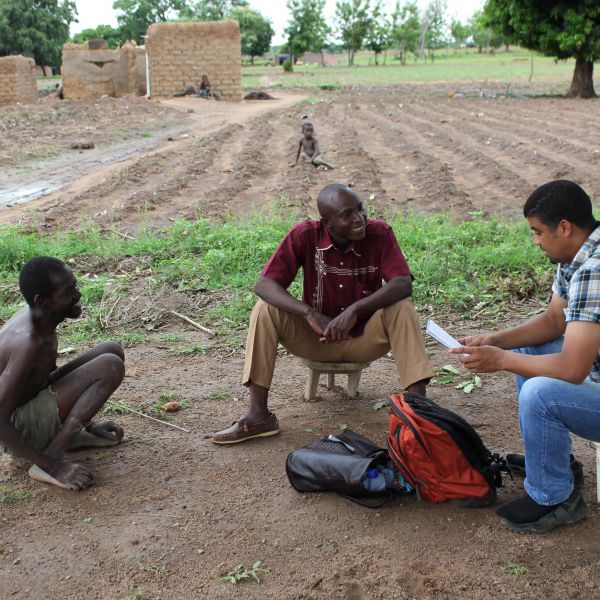The Penn State Ecology Institute established the Flower Grant program to support ecological research in our focus areas: Resilience and Adaptation, Provisions of Ecosystem Goods and Services, Ecology at the Interface, Rapid Evolutionary Change, and Ecological Foundations. Flower Grants support a wide range of projects (data collection, workshops, publication efforts), with the goal of creating new opportunities for our interdisciplinary research community. In 2019, we awarded seven Flower Grants. To learn about the funded projects, hear more from our awardees:
Dr. David Eissenstat was awarded a Flower Grant to support two keynote speakers for an upcoming international symposium at Penn State. The international symposium will bring together root and rhizosphere ecologists from across the world, generating conversation on topics ranging from fundamental aspects of root function to root management of trees in urban settings. These topics will contribute to understanding the systems below our feet on a changing Earth.
It is a treat to be organizing this symposium which meets every three years and brings together researchers on roots of woody plants from around the world. Because of the enormous challenges, relatively few people study roots of trees in forests and orchards, yet their importance to forest health, carbon cycles and fruit crop production is widely recognized. For more than 20 years, this very international group shares in the latest advancements in research and provides a global scientific network for the advancement of belowground research.
Dr. David Eissenstat, Professor of Woody Plant Physiology
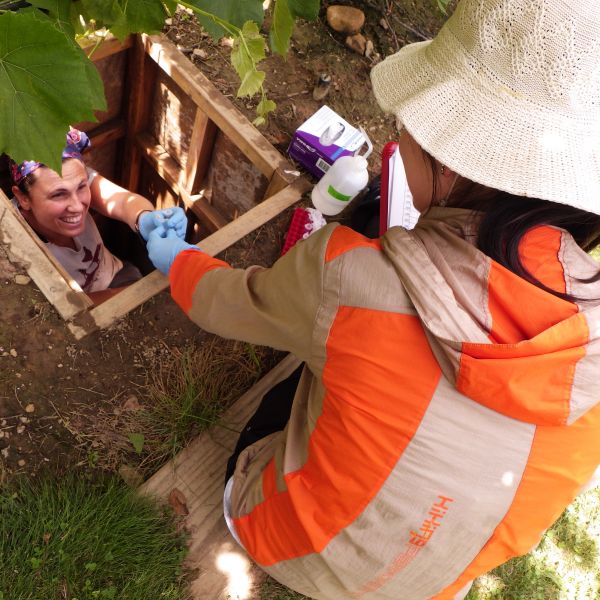
Dr. Ute Poerschke, Farzad Hashemi, and Dr. Sarith Subramaniam were awarded a Flower Grant to support an interdisciplinary workshop on the Urban Heat Island effect at Penn State. In today’s rapidly urbanizing world, cities are becoming inundated with heat-absorbing surfaces, losing vegetation, and releasing radiative emissions from vehicles and air conditioning systems. Consequently, cities experience higher temperatures than their surroundings – a process known as the Urban Heat Island effect. At the workshop, students of architecture and landscape architecture will learn how to model this process, helping them design cities that better mitigate the Urban Heat Island effect.
Increased temperatures in urban areas affect the health and wellbeing of humans, animals, and plants, and further increase energy use, for example in building air-conditioning systems. Teaching future architects and landscape architects ways to minimize these effects in their designs is an important step towards resilience and adaptation of the built environment.
Dr. Ute Poerschke, Stuckeman Professor of Advanced Design Studies
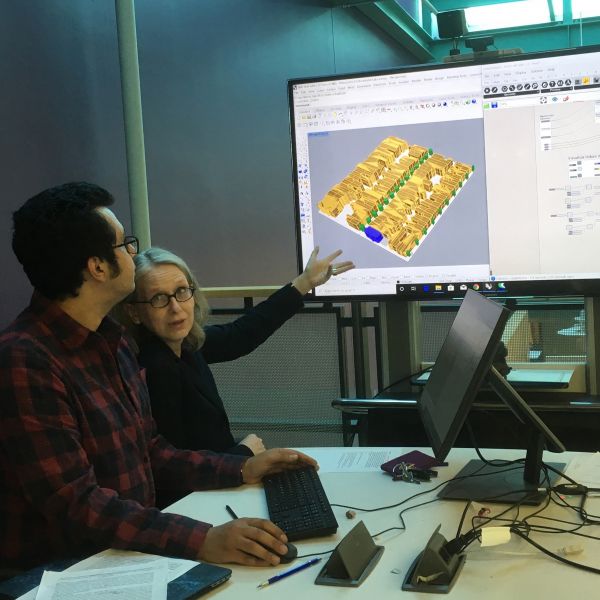
Dr. Seogchan Kang, alongside a group of internal and external collaborators, was awarded a Flower Grant to support publication efforts that will increase the visibility of microbial chemical ecology research occurring at Penn State. One theme the publications will cover includes chemical-mediated microbial interactions, with a focus on how these interactions support sustainable crop production and environmental health, the experimental tools needed to study them, and the cyberinfrastructure required to support future crowdsourcing in chemical ecology. The publications will help stimulate community efforts to ensure global food security without overtaxing the environment.
I want to help meet the steadily increasing global need for plant products without continuously expanding the environmental footprint of crop production by exploring how diverse groups of microbes interact with plants, other microbes, and the environment. Our research has already revealed several overlooked modes of microbial interactions that can be exploited to keep plants healthy without relying on synthetic pesticides.
Dr. Seogchan Kang, Professor of Plant Pathology and Environmental Microbiology
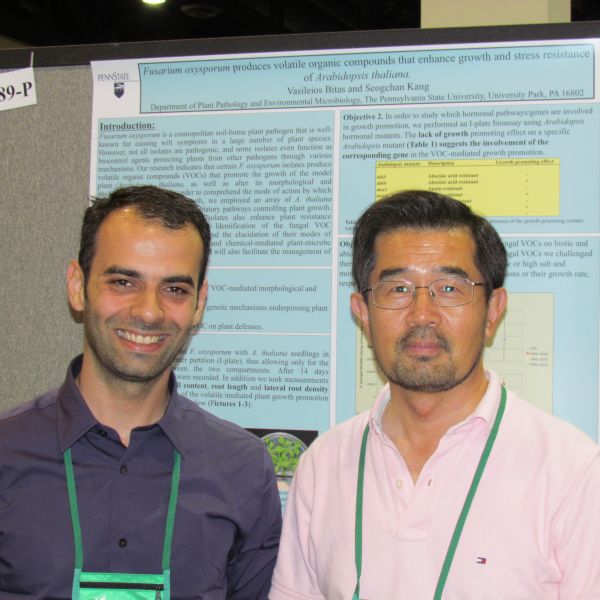
Dr. Tomás Carlo was awarded a Flower Grant to support a project on parasitic plants called mistletoes. To grow inside the woody stems of their host trees, mistletoes developed a modified root called the hasutorium, but little is known about its molecular underpinnings. The project will establish mistletoe populations in a greenhouse to understand hasutorium development at the molecular level and its relationship to the ability of mistletoes to grow along ecological gradients. These insights will broaden species representation in a larger research project intersecting ecology, evolution, and biology of parasitic plants.
I am passionate about mistletoes because they have a very interesting set of special traits and and fascinating evolutionary ecology. Mistletoes form strong mutualistic partnerships with birds that eat their fruit and dispersed their seeds in non-random fashion, while they locally adapt to host tree species. These interactions shapes their morphology and genomics in ways we want to better understand.
Dr. Tomás Carlo, Associate Professor of Biology
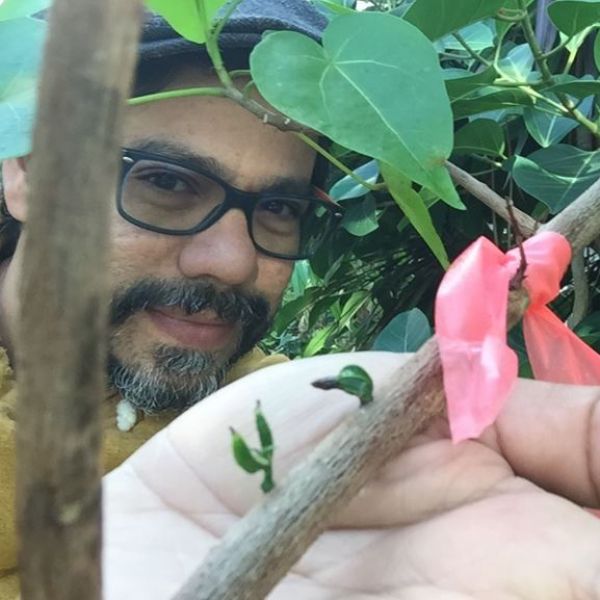
Dr. Abderrahim Ouarghidi was awarded a Flower Grant to support preliminary fieldwork on a project documenting ecological knowledge of Fulani communities in West Africa. The project builds on existing collaborations in West Africa with scientists who were once visiting scholars or Mandela fellows at Penn State. Together, the team will investigate how culture and ecology shape ecological knowledge in different agro-ecological zones, and whether knowledge sharing helps Fulani communities adapt to increasing rainfall variability. The project supports the Ecology Institute’s focus area Resilience and Adaptation and will increase understanding about connections between ecological knowledge and social-ecological resilience to climate change.
Preliminary fieldwork for this project is essential to test the feasibility of the research and to inform our research questions. Preliminary work will help to better design our methods and approaches at a larger scale. Most importantly, this preliminary field work will help engage other local collaborators and communities, an essential first step to strengthen our project.
Dr. Abderrahim Ouarghidi, Assistant Teaching Professor of African Studies and Anthropology
